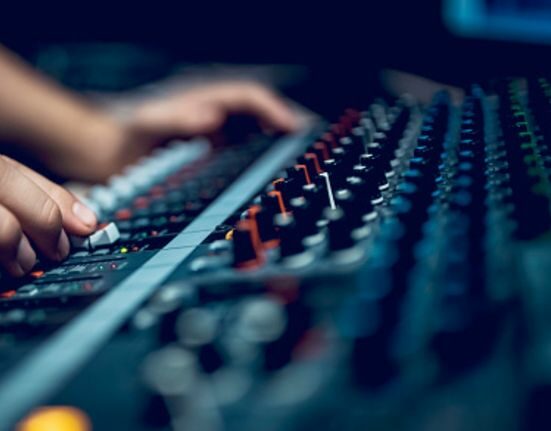Music has the ability to influence mood and emotion by altering brain activity. Studies suggest that music-related experiences can increase the activity of brain regions associated with reward and emotion. Music therapy is a form of therapy that involves using music to achieve individualized goals, such as reducing stress, improving mood, and promoting self-expression. It is a well-established, evidence-based practice within the health community that can help individuals in various ways, including psychologically, emotionally, physically, spiritually, cognitively, and socially. This article takes you through everything you need to know about Music Therapy and its uses and benefits.
BeatCurry Team
Music therapy can involve a range of activities, such as listening to music, singing, playing instruments, or composing music. It is important to note that musical skills or talents are not required to participate in music therapy. One of the many benefits of music therapy is its ability to lower blood pressure, improve memory, and reduce muscle tension. It can also enhance communication and social skills through experiencing music with others and encourage self-reflection by allowing individuals to observe their thoughts and emotions.
Music therapy can also promote self-regulation by developing healthy coping skills to manage thoughts and emotions, increase motivation, manage pain, and bring joy into one’s life. Interestingly, music therapy has a long history, and its use dates back to World War II. It was first defined and used by the United States War Department in 1945 to help military service members recovering in Army hospitals with occupational therapy, education, recreation, and physical reconditioning.
Boosting Mental Well-being With Music
Music has a profound effect on the brain, and listening or performing music can activate various regions of the brain and stimulate complex neural processes. Here are some of the ways music affects the brain:
-Enhances Emotional Responses: Listening to music can activate the reward centers of the brain, releasing dopamine, a neurotransmitter that is associated with pleasure and motivation. This can elicit a range of emotions and can help to reduce stress, anxiety, and depression.
-Boosts Cognitive Abilities: Research has shown that listening to music can improve cognitive abilities, including memory, attention, and executive function. This is thought to be due to the neural activation that occurs when processing music.
-Improves Motor Skills: Playing an instrument or engaging in musical activities can improve fine motor skills, hand-eye coordination, and finger dexterity. This is because playing an instrument requires precise movements and coordination between the hands and fingers.
-Enhances Communication: Music is a universal language that can help to enhance communication and social interaction. Singing in a choir or playing music in a band can help to improve communication skills and develop a sense of community and belonging.
-Reduces Pain: Research has shown that music can help to reduce the perception of pain by activating the brain’s reward centers and releasing endorphins, which are natural painkillers.
Getting Started. Understanding The Process. Condition, Cure & Benefits
Music therapy is a form of therapy where music is used to help people of all ages and backgrounds with various conditions. Music therapists work with military service members and veterans, individuals with Autism Spectrum Disorder, Alzheimer’s disease, people in correctional settings, victims of trauma and crisis, those who are physically ill, individuals with mental health disorders, substance abusers, and children and adolescents with behavior disorders, mood and anxiety disorders, ADHD, ASD, trauma, and substance abuse disorders. Music therapy sessions may take place in hospitals, schools, nursing homes, outpatient clinics, mental health centers, and private practices.
Before the session, a music therapist will assess the individual’s needs and strengths and identify goals to design appropriate music therapy experiences for the session. During the session, the therapist and individual may create music, sing music, listen to music, move to music, discuss lyrics, or play an instrument. Research in music therapy supports its effectiveness in six areas: psychological, emotional, physical, spiritual, cognitive, and social. Music therapy has benefits such as emotional release, decreased depression and anxiety, improved mood, improved motor development or processing, relaxation, improved sleep, pain management, coping skills, improved communication, and bringing people together socially.
Music therapy can be beneficial for individuals with various physical, emotional, and cognitive disorders, diseases, or issues. Some of the conditions that music therapy could potentially address include:
-Autism Spectrum Disorder (ASD)
-Alzheimer’s disease and other forms of dementia
-Trauma and post-traumatic stress disorder (PTSD)
-Mental health disorders, such as depression, anxiety, and bipolar disorder
-Chronic pain conditions, such as fibromyalgia, migraines, and arthritis
-Substance abuse disorders
-Behavioral disorders
-Attention deficit/hyperactivity disorder (ADHD)
-Parkinson’s disease and other neurological conditions
-Cardiovascular disease and other chronic illnesses
-Speech and language disorders
Music therapy can provide a wide range of benefits for individuals with these conditions, including improved mood, decreased anxiety and depression, increased relaxation, enhanced socialization, and improved cognitive and motor functioning. It can be used as a standalone treatment or in combination with other therapies to promote holistic healing and well-being.
In Summary,
Music therapy is a powerful tool that can provide numerous benefits to individuals struggling with various physical, emotional, cognitive, and social issues. With its proven effectiveness and non-invasive approach, music therapy has become an increasingly popular form of therapy that can help individuals achieve their goals and improve their quality of life.
Related reviews and articles you’d like to see:
Subscribe to BeatCurry’s YouTube Channel here
Check out our Web Stories: Interesting scoops, trivia, stories, industry news delivered at your fingertips.
Watch: Exclusive interview with World’s Fastest Guitarist Davide Lo Surdo
Watch: Exclusive interview with GRAMMY awardee, Pt. Vishwa Mohan Bhatt
Exclusive Music Review: Mali Delivers An Ode To Each Broken, Hurt Heart Through ‘Ashes’
Exclusive Music Reviews: Mame Khan’s ‘Desert Rose’ Recites The Heartfelt Journey Of Life
Explore: #BeatCurryShorts NOW!
Explore: Check out the BeatCurry Podcast HERE!
If you’d like to know about the unique and versatile forms and flavors of music, follow us on Instagram, YouTube and Facebook, subscribe to BeatCurry.com and never miss another update from us.







